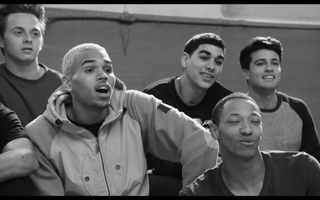I am an atheist. I believe organized religion is at least partially responsible for the majority of the wars that have taken place on our planet since the beginning of time; I haven’t gone to a temple for the High Holidays in over eight years; and I wouldn’t attend Shabbat dinner at Hillel if Benjamin Netanyahu himself were there.
But…
This morning, when I saw that swastikas were drawn on Yale University’s Old Campus, I was more than scared; I was angry. Because I knew that whoever drew that rigid shape on the pavement outside of a freshman dorm late Sunday night was not only targeting Jews who fast on Yom Kippur or believe in the necessity of Israel. No, that swastika was directed at me—me, my parents, and my friends.
In an email to the Yale student body, Dean of College Jonathan Holloway lamented that “despite attempts to remove these the images from the sidewalk...their faint impressions remained.” Perhaps unintentionally, Holloway pointed out the almost poetic metaphor of these non-erasable swastikas; just as the chalk could not be completely erased, the lingering effects of Jewish oppression throughout the world continue to plague society.
After all, regardless of how I personally identify, I go around knowing that Adolf Hitler would have been just as happy to execute me as any practicing Jew, and if someone were once again to persecute the Jewish people on a global level, I might as well have a yellow Jewish star permanently sewn onto my clothing. And so, while I have never been a practicing Jew, I try to remain acutely aware of the fact that my ancestors were persecuted repeatedly throughout history, and that I am just one series of catastrophic events away from being persecuted myself.
However, even though I have always understood my vulnerability on an intellectual level, today marks the first time in my life that I have felt personally hated, judged, and dismissed for something I have absolutely no control over. And this feeling—which I always understood cerebrally—now has emotional relevance for me.
I still believe that religion is a remarkably destructive force, but today I am less inclined to make overarching, blanket statements about entire religions. Yes, I believe that the unimaginable inequality faced by women in many predominantly Muslim countries is abhorrent, just as I disagree with some Christians’ beliefs about gay marriage and many of the actions Israel’s government has taken in Palestine (not to create a false equivalency between any of these things). That said, I am learning to draw a distinction between devoutly religious people and religions—to separate the individual from the institution.
And while I maintain that organized religion is at the root of some of the most awful institutions in the world—and I still have no plans of attending Hillel for Shabbat dinner anytime soon—I want to stress that the type of bigoted anger that drove people to draw swastikas last night is unjustifiable no matter the cause.
Today, it is not important to condemn religion; it is important to condemn hatred.
Sam H. Koppelman ’18, a Crimson editorial comper, lives in Hollis Hall.
Read more in Opinion
Give B's a ChanceRecommended Articles
-
Hillel Elects New LeadersHarvard Hillel elected its third consecutive female president at last night’s elections. Judith Z. Herbstman ’07 will also be the
-
Harvard Freshman Sits Alongside First Lady During State of the Union AddressWhile other Harvard students watched last night’s State of the Union address on TVs across campus, Janell J. Holloway ’13 had a much closer seat—in First Lady Michelle Obama’s personal box.
-
 “Battle of the Year” Loses the War
“Battle of the Year” Loses the War -
Royall Must LiveIf the Law school changed its crest, it would simply generate a “so what?” question. It would serve no political or symbolic good, while effectively exempting the need for any conversation on the subject.
-
Yale’s College Dean Will Step Down In JuneDean of Yale College Jonathan Holloway will step down from his position this summer to serve as Northwestern University’s provost, marking the end of a tumultuous three-year term.













